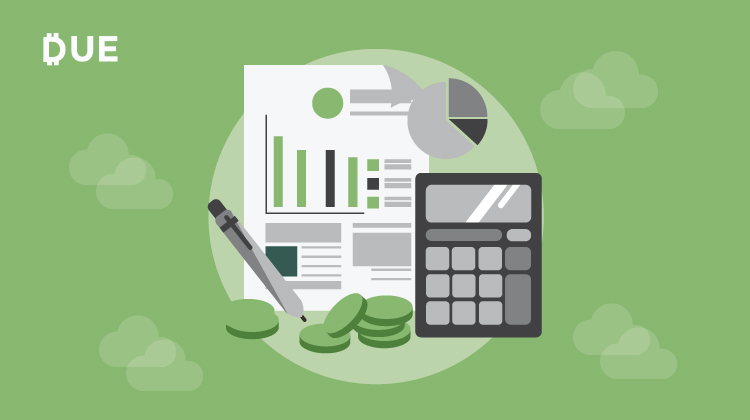Whether you’re a freelancer, small business owner, or entrepreneur, having a steady cash flow is one of the most important factors in determining your success or failure. Simply out, if you don’t have enough cash coming in on a specified date each month, then how can you expect to pay your expenses and overhead?
To help you start earning more each flow for your business, here are 8 tips from accountants.
Table of Contents
ToggleAccountant tip 1. Get a Handle on Your Cash Flow Quickly
If your small business is struggling with cash flow you have to get to the root cause. The most effective way is to perform a cash flow analysis. But, preparing a Statement of Cash Flows can cost you both time and money – which are equally limited.
John W. Day, MBA, suggests that you use the following “quick and dirty method to get a handle on your cash flow.”
Start with Net Income, add back your Depreciation or Amortization expense, and then adjust for any accruals like Accounts Receivable and Accounts Payable. Add or subtract any gains or loses to the disposition of assets and then view your Balance Sheet. Go through each to see if your cash flow increased or decreased. By doing so you can see where your money went. It could turn out that some of your cash went towards taxes or inventory and isn’t lost.
Day concludes, that the “idea is for the sources and uses of cash to be somewhat close, enough anyway for you to feel satisfied that no money has gone missing. If the sources and uses of cash are not close after applying the quick and dirty method, at least you will know that you better dig in and find out why.”
Accountant tip 2. Expedite Cash Flow
The sooner money comes in, the healthier your cash flow will be. You can expedite by doing these simple tasks suggested by Jake Cavanagh of TGG Accounting:
- Do a credit check on clients or customers to see if they have a history of paying their bills and invoices on-time.
- Invoices should be sent out frequently. For example, an invoice should go out immediately when a product ships.
- Offer a discount to customers who pay their invoices early.
- Accept multiple forms of payment, like credit cards, checks, or third party payment gateways like PayPal.
Accountant tip 3. Examine Current Assets and Liabilities
Harold Averkamp, CPA, MBA, and founder of AccountingCoach.com, states that, “A business can increase its cash flow from operations (or operating activities) by looking closely at each of its current assets and current liabilities.”
Averkamp adds:
“For instance, a manufacturer should examine its inventories of materials, work-in-process, finished goods, and supplies to identify the inventory items which have not turned over in a long time. Those items may need to be scrapped so that a loss can be reported and cash will not flow for income taxes. It may also mean less cash flowing out for new materials. Reviewing the turnover of each and every item may allow the company to reduce the inventory quantities thereby freeing up cash that would have been sitting in inventory.”
Accountant tip 4. Factoring
Alice Magos, an accountant, a Certified Financial Planner, a Certified Fraud Examiner, suggests on BizFilings that your business can increase its cash flow through factoring. For those unfamiliar with factoring, MAgos states that this “is selling the value of what your customers owe you before they pay it.” When you sell your invoices you have immediate access to cash, as opposed to waiting for the customer to pay the invoice. In fact, you may have the cash delivered into your bank account in just 24 hours.
Another benefit of factoring is that it’s not loan, which means it keeps you from piling on debt. Finally, it avoids getting a collection agency involved.
If you do go this route, just be aware that factoring can be expensive and may harm the relationship you have with your client.
Accountant tip 5. Accurately Forecast Cash Flow
When you can predict your cash flow as accurately as possible you can plan your budget accordingly, as well as spot any trouble areas that are jamming up your income stream. The Fundbox team recommends on the Fundera Ledger that you take the following steps to accurately forecast your cash flow;
- Analyze business indicators like your sales pipeline and sales funnel.
- Estimate your sales booking timeline by assessing when a sale is closed.
- Regularly maintain and update your budget.
- Establish clear payment terms so that you have a better idea of when an invoice will be paid.
- Regularly review your forecast so it’s bound to change over the course of the year.
You can also use data science to predict your cash flow and set your budget.
Accountant tip 6. Set Sales Goals
It’s one thing to predict sales for each month, but you also need to take into consideration the seasonality of your business. Amy Vetter, the global vice president of education and head of accounting for USA for Xero, notes on The Business Journal;
“It’s not enough to say that you need to increase sales by 10 percent for the year. You need to consider the seasonality of your business each month to achieve that 10 percent goal. This could mean that you need to increase sales in November and December by 30 percent, but in January and February it’s only 5 percent. You need to average these highs and lows to achieve your overall goal.”
Accountant tip 7. Slow Down on Payables
What happens when you have an electric bill or invoice from a vendor on the first of the month and the client won’t pay until the fifteenth? You’re putting your cash flow in jeopardy. Sam Thacker suggests on AllBusiness.com that negotitate terms with your vendors. You could make installments every 30, 60, and 90 days or workout a “depletion terms.” This means that “when the distributor sells the inventory, he pays for it.”
Thacker also suggests you “negotiate a one-time slow pay if cash flow necessitates it.” If you have a close relationship with your vendors, they should be willing to work with your during difficult times.
Finally, “ when it comes to paying other payables like electricity, and phone, figure out the last possible date to pay without incurring a costly penalty or being disconnected.” This gives you time to make sure that you have enough money coming in to handle all of your bills.
Accountant tip 8. Create and Enforce a Payment Process
Finally, Carrie Smith, founder of Careful Cents, strongly recommends that you create and enforce a payment process. This should cover how you’ll get paid (52% of business owners have reported that they have made $1,000 more per month just because they accept credit cards), when you’re sending out invoices, and the repercussions if not paid on-time. Smith also includes information like:
- Areas of specialization
- The turnaround for completing a project
- Business hours and email response time
- Additional charges
And, if you don’t get paid, then stop work immediately.















